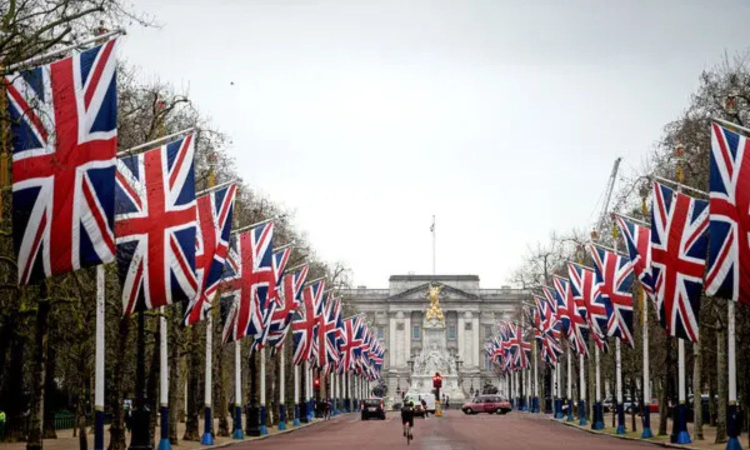Hard-right Nativism: Britons may hate Trump, but they like Trumpism
The honor of a visit is traditionally extended to American leaders in only their first term in office.

In February, on a desperate diplomatic trip to the White House, Prime Minister Keir Starmer of Britain pulled out a card from the inside pocket of his plain black jacket. Gingerly, he presented it to President Trump: It was, he explained, an invitation from King Charles III for Trump to make a second state visit to Britain. The honor of a visit is traditionally extended to American leaders in only their first term in office. A second visit, Starmer was quick to point out, would be “truly historic.”
On Tuesday, Trump will make good on the offer and pitch up in Britain for two days of pageantry. There will be less outrage than during his first state visit in 2019, but major protests are still planned. The American president is very unpopular in Britain. Three-fifths of the British public disapprove of him, according to one poll, and the top words associated with him include “idiot” and “dangerous.” The government’s obsequious approach has attracted only scorn. Over here, Trump is an easy punchline, not a president.
Yet his hard-right nativism isn’t getting such a hostile reception. On the contrary, it is flourishing. Politically, this is expressed through the stunning rise of Reform UK, an aggressively anti-migrant party led by the establishment’s bête noire, Nigel Farage. Socially, resentment and antipathy to outsiders are all the rage. Britons may dislike Trump, as he embodies almost every negative stereotype about Americans. But they seem, more and more, to like Trumpism.
The story of how Britain arrived at this juncture is long and ugly, a moving-right show played out over decades. But the most recent chapter would focus on widespread disenchantment with the Labour government, elected with a huge majority in 2024. The party’s promise was to take the country out of the long winter endured under 14 years of Conservative rule.
It hasn’t happened yet. Instead, amid disarray that has seen scandals take down the deputy prime minister and the ambassador to Washington in the past two weeks alone, the message has been one of making “tough choices.” These choices are oddly reminiscent of the ones pursued by previous governments: Chiefly, cut public services and talk a draconian game on immigration.
The strategy has proved unavailing. As large numbers of Britons experience severe economic pressure and crumbling infrastructure, attention has focused on asylum seekers arriving on British shores in small boats. Resentment toward refugees and migrants, in an atmosphere of scarcity, has risen. Farage has adeptly harnessed this anger. Like Trump, he offers a potent nationalist narrative that blames shadowy interlopers for the country’s decline and promises a golden future — or a return to an imagined golden past — once the foreigners are expelled and Britain can be made great again.
Hoping to steal the success of Reform, Labour and the much-diminished Conservatives have tried to ape that message, though without its secret ingredient of optimism. It’s a peculiar sight: Britain’s previously dominant political parties confined to the sidelines, effectively cheerleading the far right’s dynamic insurgency. The reality of this new political configuration was laid bare in May’s local elections, when Reform won 41% of all seats, secured two mayoralties, and took over 10 councils. Remarkably, the once fringe party now has a strong shot at becoming the next government.
Beyond Westminster, a British form of Trumpism is taking root. Last summer, anti-migrant riots erupted across the country as far-right groups capitalised on misinformation about the identity of a child murderer. Since then, there have been alarmingly frequent protests at temporary accommodation sites that house asylum applicants. These places, which are colloquially — and misleadingly, given their dire living conditions — referred to as asylum hotels, have become a regular target for far-right pugilists.
This summer, a new phenomenon has emerged: flags. Across Britain, national flags are suddenly everywhere. They hang from lampposts and windows and are daubed onto walls and roundabouts. The trend began in a Birmingham suburb and has since spread, under the name Operation Raise the Colors. Despite insistence from some that it is an innocent attempt to reinstill national pride, research suggests an organised far-right campaign is behind the banners, which have long been associated with xenophobia and nativism.
Some local councils have resolved to remove the flags; others have judged it less inflammatory to leave them alone. Regardless, the flags keep coming. On Saturday, as the far right mustered for one of its biggest ever demonstrations, London was awash with them. When Trump touches down on Tuesday, he’ll be greeted by more of the same. Perhaps such a clear sign of his political success across the pond will, despite the jeers and boos directed his way, make him feel right at home.
©️The New York Times Company



